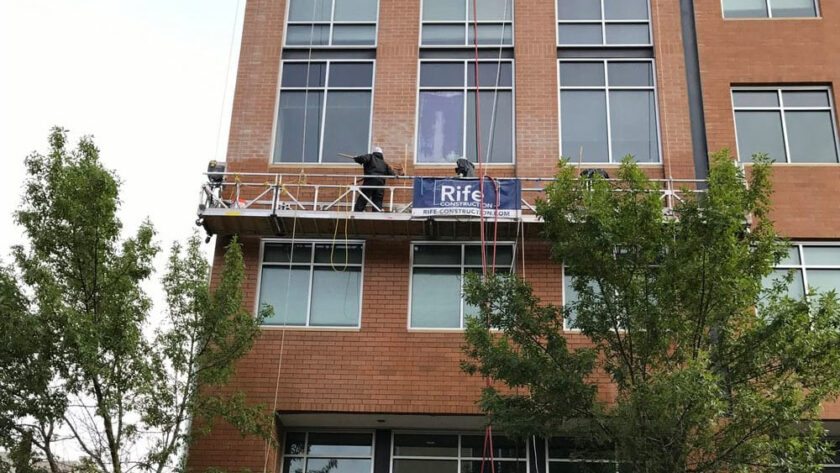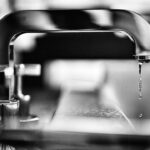Masonry offers great design flexibility and a unique aesthetic that sets your building apart from the crowd. It is also load-bearing and fire-resistant, which saves you on insurance costs.
However, masonry is vulnerable to damage caused by water. This can lead to costly repairs that can be avoided with upfront prevention.
Contents
Prevents Water Damage
Masonry waterproofing protects brick, stone, and masonry from moisture penetration that can damage the surface. This moisture can lead to hairline cracks in masonry walls and chimneys, deteriorate mortar joints, and cause dangerous mold, mildew, and algae growth.
To properly waterproof masonry, it is important to prepare the surface. All masonry surfaces must be clean of debris, dirt, and dust before sealing. Then, all cracks less than 1/8-inch wide should be filled with a polyurethane caulk designed for masonry use. Cracks wider than that should be repaired with a masonry patching material like hydraulic cement. Finally, efflorescence should be removed with muriatic acid to prevent it from preventing the sealant from adhering to the masonry.
Unlike paints, masonry sealants are formulated to adhere permanently to concrete masonry and provide a moisture barrier. These products are not suitable for use on wood surfaces. Using a latex base, masonry waterproofing creams allow rain and water vapor to pass through the masonry but not vaporized moisture or humidity. These products are perfect for older natural brick buildings because they do not change the appearance of the masonry.
Prevents Mold and Mildew
Even the toughest brick and masonry materials can deteriorate over time. Without the protection of a waterproof barrier, water seeps into the pores of brick and stone, increasing the risk for hairline cracks and mortar deterioration, as well as hazardous mold and mildew growth.
Masonry waterproofing protects against the damaging effects of moisture by creating a hydrophobic barrier that prevents moisture absorption. Waterproofing is especially important in retaining walls, chimneys and other masonry structures constantly exposed to water.
Traditional paint-like products may crack, peel or blister within a few years and are difficult to remove from brick and masonry. On the other hand, true masonry stains penetrate deeply into brick and masonry blocks, mortar and stucco. They provide a permanent solution to waterproofing and staining and can be mixed with colors to match virtually any porous masonry color closely. Some masonry water repellents also offer superior efflorescence resistance and reduce radon penetration.
Prevents Stains
Stains on brick and masonry surfaces, particularly those around foundations, need to be more light and can indicate moisture intrusion. The stains are called efflorescence and are caused when water penetrates the porous masonry, mixes with water-soluble salts and comes to the surface. The best way to prevent these stains is by installing a gutter system and waterproofing the masonry.
While several products are available to protect masonry, not all are created equal. Many water repellents form a film on the surface, while others penetrate the pores of the masonry. Penetrating sealants bond with the masonry substrate and act as an integral barrier to stop water penetration.
Most common masonry waterproofers use silicone (-Si-) chemistry to fill the pore structure of building materials. These products tend to perform well on heavy- or medium-weight CMUs, but less well on lightweight units, which are used extensively in single-wythe concrete masonry walls.
Prevents Corrosion
Water infiltration and moisture penetration are the leading causes of damage to masonry walls. This can lead to hairline cracks, mortar deterioration, hazardous mold, and mildew growth. In addition, excess moisture can cause salt efflorescence. Integral waterproofing from Rife Masonry can prevent these damaging effects on your brick walls.
An integral waterproofing product is a polymeric admixture mixed with the mortar during construction. These products reduce permeability and are the best solution for newer brick structures. However, they cannot be used on older natural stone or brick buildings. An alternative to an integral waterproofing product is a surface waterproofing treatment. These are damp-proof paint, masonry waterproofing paint, and masonry surface coatings that form a waterproof film over the surface of concrete masonry.
Surface repellents like silicones and silanes can penetrate up to 12.7 mm (1/2 in.) into the mortar and units of a CMU wall. These are penetrating-type sealants that protect from water penetration.




